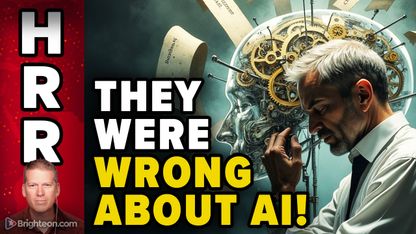
We needn't worry anymore, Democrats said, because brand-new unaccountable agencies like the Consumer Finance Protection Board were going to make sure that depositors were safe, their assets protected, and the bad guys who run shoddy banks dealt with.
But here we are, a mere 15 or so years later, and the same thing is happening again with banks – one collapse and insolvency after another, though taxpayers have spent billions of dollars propping up new federal agencies and plastering laws on the books that no one obviously follows because we've already had a series of bank failures in recent months.
And if that's not bad enough, then we have the woke nanny state moving in to attack healthy banks with nonsensical requirements that do nothing to enhance their performance and protect depositors.
On Thursday, for instance, New York City's Banking Commission took action against Capital One and KeyBank, major banking institutions, for failing to submit anti-discrimination plans to the city. New York City Comptroller Brad Lander announced in a press release that the commission voted to "freeze NYC's deposits" at both banks.
“The headline is a wobbly one, given the recent banking system chaos. But, the detail is oh-so NY,” Eamonn Sheridan commented on Forexlive.
The freezing of deposits is unrelated to the financial stability of the banks involved but rather pertains to their failure to comply with a New York City requirement mandating the submission of anti-discrimination plans.
Consequently, Capital One and KeyBank will no longer receive any further deposits from the city. In addition, three other banks—International Finance Bank, PNC Bank, and Wells Fargo—were also denied the designation as eligible institutions to hold the city's funds due to non-compliance with the same requirement, the Western Journal reported.
“Banks seeking to do business with New York City must demonstrate that they will be responsible managers of public funds and responsible actors in our communities,” Lander stated in his release.
“Unfortunately, despite several opportunities to do so, five banks failed to comply with the New York City Banking Commission’s designation process – leaving us to conclude that they are not taking meaningful actions to combat discrimination in their operations and are not responsible stewards of public dollars,” he said.
Unsurprisingly, the left-wing hack New Yorkers elected to be their mayor last time around, Eric Adams, sided against the banks.
According to the release, Capital One, which held $7.2 million in New York City money as of the end of April, and KeyBank, which held $10 million, “outright refused to submit required policies.” The result: No new funds can flow into the banks for two years.
Such insanity.
Following the 2008 "Great Recession," Congress passed the Dodd-Frank Wall Street Reform and Consumer Protection Act of 2010. This law aimed to prevent another financial crisis by imposing new regulations on the banking and financial industry. Dodd-Frank established new agencies to oversee financial markets and protect consumers from predatory lending practices. The law also included provisions to increase transparency and accountability in the financial sector, including rules requiring banks to hold more capital and limiting risky investments.
Another significant piece of legislation passed by Congress after the Great Recession was the Hiring Incentives to Restore Employment (HIRE) Act of 2010. This law provided tax incentives and credits to businesses that hired new employees, with a particular focus on hiring unemployed workers. The HIRE Act also included provisions to encourage investment in small businesses and improve access to credit for entrepreneurs.
But what these laws didn't address was far-left Democrat lunacy.
Sources include:
Please contact us for more information.






















